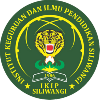THE EFFECTIVENESS OF ROLE-PLAY TECHNIQUE TO IMPROVE SPEAKING SKILLS FOR EIGHTH GRADE STUDENTS
Abstract
This research aims to examine the effectiveness of the Role Play technique in learning speaking for eighth-grade students. This research used a quantitative method with pre-experimental one-group. This studys’ subjects were all 21 students in class VIII. The data was collected through a pretest and the posttest was assisted by IBM SPSS 25. This study used a test as an instrument. The result of this study can be seen in the data, which shows that the average pretest score is 0.122 and the average posttest score is twenty-one students (100%) were in the insufficient category. While the posttest that the students’ achievement in experimental classes students’ in post-test increased. Five students’ (24%) got excellent, two students’ (10%) got very good, five students (24%) got good, two students (10%) got sufficient, and seven students’ (32%) got insufficient. The result of this study also can be seen in the data SPSS, which shows that the average pretest score is 0.122 and the average posttest score is 0.143. Normality test asymp. sig. (2 talled), 0.122 of pretest and 0.143 on posttest, data was normal. T-test value (sig) of (2-tailed) is 0.000, that means the significant value is less than 0.05. The conclusion from this study is that there is effectiveness in using roleplay techniques to improve speaking skills because the teacher knows how to make the class interesting, exciting and creates an active class using the role play technique.
References
Ayuningtias, D. O., & Yana, Y. (2019). The Use of Role Play to Improve Students'speaking Skill. PROJECT (Professional Journal of English Education), 2(3), 416-420.
Brown, H. D., & Abeywickrama, P. (2004). Language assessment. Principles and Classroom Practices. White Plains, NY: Pearson Education.
Hidayah, N. (2021). Improving Students'speaking Skills through The Describing Method. In Prosiding Seminar Nasional Pendidikan Universitas Subang (SENDINUSA) (Vol. 3, No. 1, pp. 346-351).
Huang, I. Y., & Shan, J. (2008). Role play for ESL/EFL children in the English classroom. The internet TESL journal, 14(2), 1-10.
Mertayasa, I. K. (2023). Metode Diskusi Kelompok Kecil Sebagai Upaya Untuk Meningkatkan Prestasi Belajar Pkn Siswa Kelas VI A SD Negeri Tulangampiang. Indonesian Journal of Educational Development (IJED), 3(4), 544-552.
Pendidikan, P. P. (2019). Pusat Penilaian Pendidikan: Kementerian Pendidikan dan Kebudayaan. Dipetik November 2019, dari Laporan Hasil UN.
Rokhayani, A., & Cahyo, A. D. N. (2015). Peningkatan Ketrampilan Berbicara (Speaking) Mahasiswa Melalui Teknik English Debate. Refleksi Edukatika: Jurnal Ilmiah Kependidikan, 5(1).
Sellers, S. C. (2002). Testing theory through theatrics. Journal of Nursing Education, 41(11), 498-500.
Susanto, S. (2010). Syllabus dan RPP. Unesa Universty Press.
Syafiq, A. N., Rahmawati, A., Anwari, A., & Oktaviana, T. (2021). Increasing Speaking Skill through YouTube Video as English Learning Material during Online Learning in Pandemic Covid-19. Elsya : Journal of English Language Studies, 3(1), 50–55. https://doi.org/10.31849/elsya.v3i1.6206
Downloads
Published
Issue
Section
License

This work is licensed under a Creative Commons Attribution-ShareAlike 4.0 International License.











